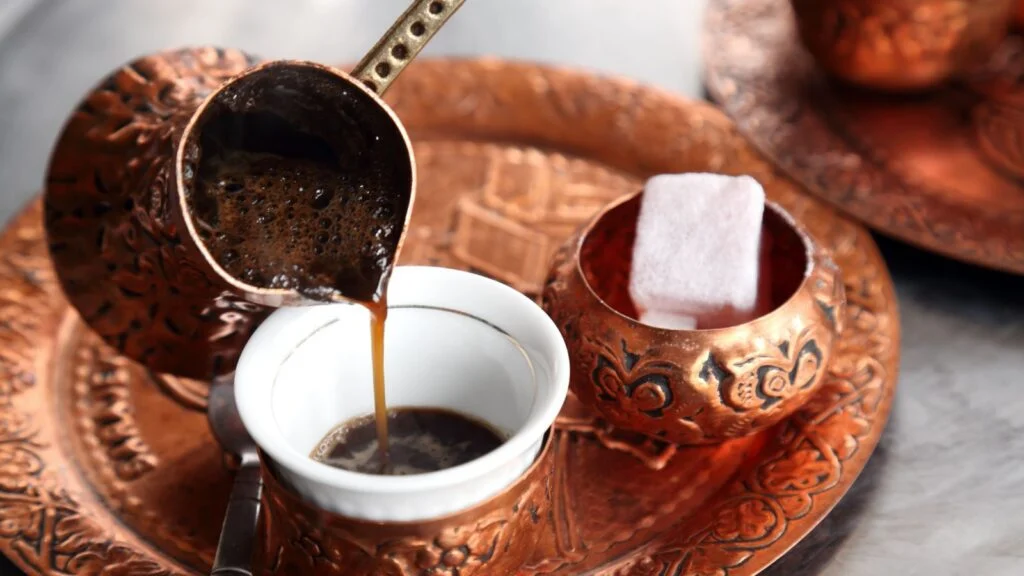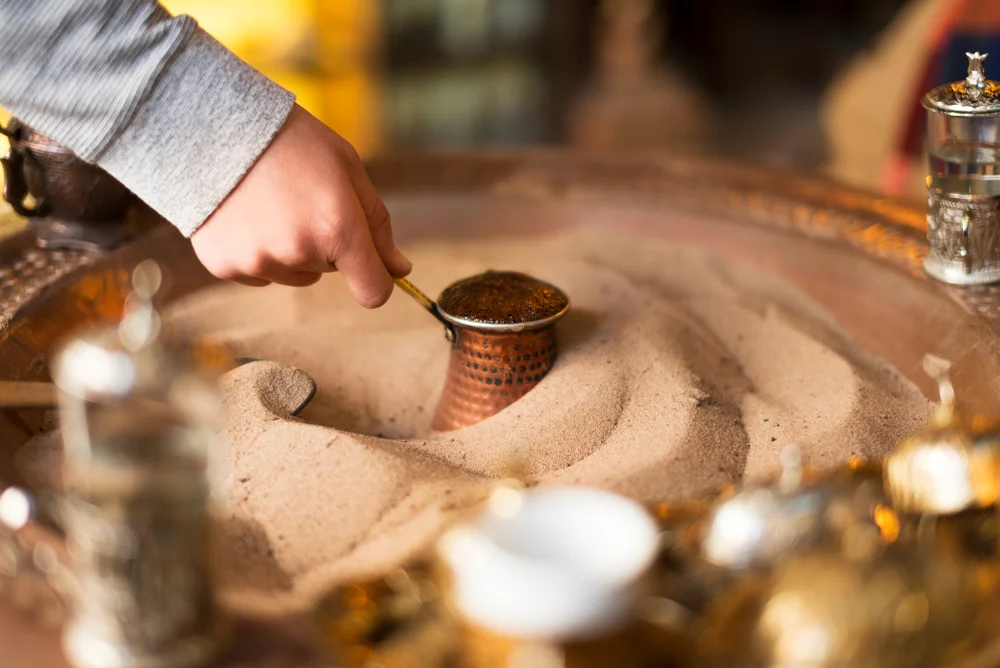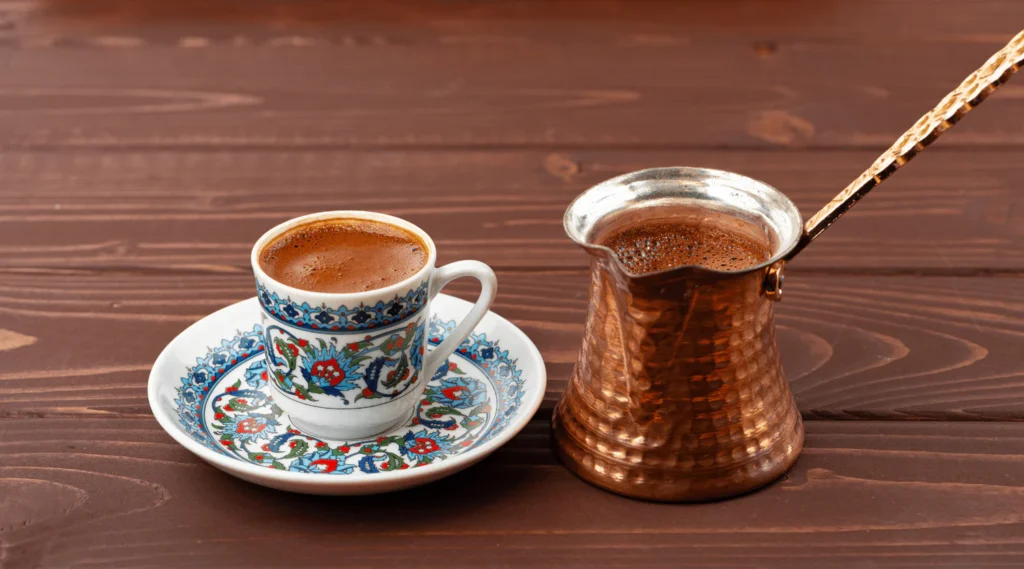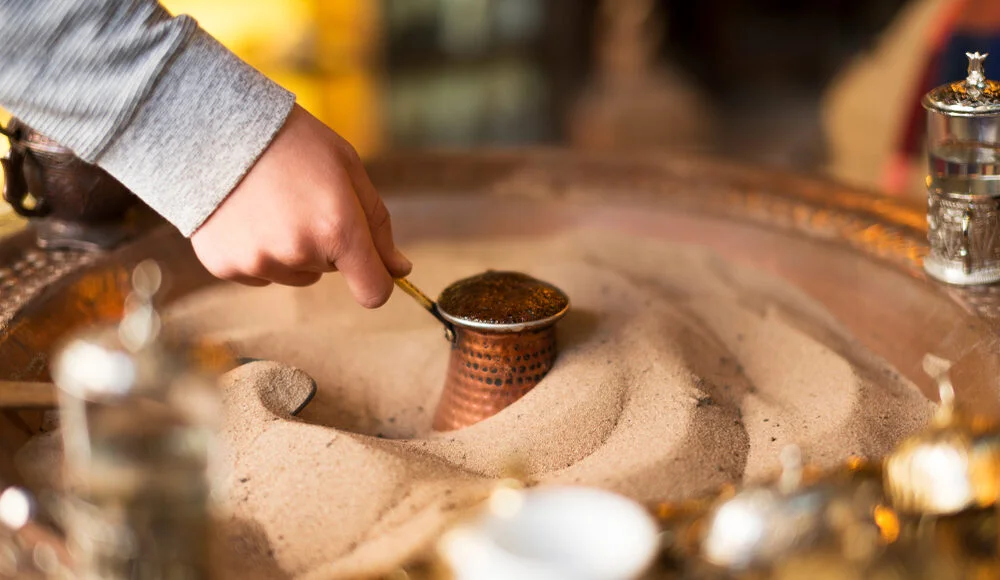Summary Checklist:
- What Turkish coffee is.
- How it’s made differently than espresso.
- The taste and texture of Turkish coffee.
- Why Turkish coffee is more than just a drink.
- Why you should give it a try.

I’ll be honest, when I first heard about Turkish coffee, I didn’t really know what to expect. I mean, I was familiar with coffee, but this whole “Turkish” style was a bit of a mystery to me. I’ve always been a fan of espresso and the classic coffee shop staples like lattes and cappuccinos, but Turkish coffee? It was a whole different story.
I decided to give it a try. A friend of mine, who’s Turkish, invited me over for coffee one afternoon. I didn’t know it yet, but I was about to experience coffee in a way I hadn’t before. It wasn’t just about the taste—it was about the whole process. And let me tell you, it was a lot more than I expected.
So, What Exactly is Turkish Coffee?
When it comes to coffee, there are a lot of ways to brew it. We all know about espresso, drip coffee, and pour-over, but Turkish coffee has its own unique way of doing things.

Turkish coffee is made with very finely ground coffee beans—think powder-fine. You don’t use a filter like you do with most other types of coffee. Instead, the coffee grounds stay in the cup when you drink it. It’s all about the method. The coffee is brewed in a special small pot called a cezve, where you mix the coffee, water, and sugar (if you like it sweet) before placing it over low heat. You slowly bring it to a boil, letting the foam rise. It’s a pretty slow process, but that’s part of the charm.
Once it’s ready, the coffee is poured into tiny cups. And that’s it. No fancy machines. No rushing. Just pure, unfiltered coffee.
Turkish Coffee vs. Espresso: Not the Same Thing
If you’re a fan of espresso, you might think Turkish coffee is just a different version of it. While both are small, strong, and made with finely ground coffee, that’s where the similarities end.

Espresso is made by forcing hot water through finely ground coffee under high pressure. The result? A smooth, concentrated shot with a layer of creamy foam (called crema) on top. It’s clean and quick, perfect for a jolt of energy or as a base for other drinks like lattes or cappuccinos.
On the other hand, Turkish coffee is made with patience. It’s brewed slowly, without any pressure, and the result is a thick, rich coffee with a lot more texture. The grounds settle at the bottom of your cup, so the coffee is a bit gritty. You don’t drink it fast. You savor it. It’s less about the quick caffeine kick and more about the full experience. It’s strong, yes, but with a much fuller texture and flavor.
The Flavor: Rich, Bold, and Full of Personality
If you’ve never tried Turkish coffee before, be ready for something different. The flavor is deep and earthy, and because the grounds are left in the cup, the coffee has a thick, almost syrupy texture. It’s not like any espresso you’ve had. The taste is rich, intense, and depending on how much sugar you add, it can be quite sweet.

Since it’s unfiltered, there’s a certain depth that you don’t get in your regular espresso or drip coffee. You can taste the coffee in a way that feels more raw. If you’re someone who loves strong coffee, you’ll appreciate how Turkish coffee takes that boldness and turns it up a notch. It’s not a drink to rush through. You take small sips, letting the flavor linger on your tongue.
Why Turkish Coffee is More Than Just a Drink
One of the things that really sets Turkish coffee apart is how much more it is than just a caffeine fix. In Turkey, and other parts of the Middle East, coffee is woven into the culture. It’s a part of daily life and a symbol of hospitality.

When you offer someone Turkish coffee, it’s a gesture of respect and warmth. People gather around and take their time, chatting and sipping slowly. It’s a social experience, not just a caffeine boost. It’s about connecting, sharing, and enjoying the moment together. There’s a certain ritual to the whole thing—preparing the coffee, waiting for the foam to rise, and finally sitting down to sip and talk. It’s about more than the taste, it’s about the experience.
Why You Should Try Turkish Coffee
If you’re a coffee lover, I highly recommend giving Turkish coffee a try. It’s not like your typical espresso or drip coffee, and that’s exactly why it’s worth experiencing. It’s got that bold, rich flavor that packs a punch, but it’s also an experience. You slow down. You take your time. And you connect with a centuries-old tradition.

Plus, there’s something special about drinking Turkish coffee that’s just brewed the traditional way. It’s like stepping into history for a moment, and that’s something every coffee enthusiast can appreciate.
If you’ve only ever had espresso or regular coffee, Turkish coffee will feel like a whole new world. It’s thick, strong, and powerful. It’s a coffee that makes you appreciate the process, the culture, and the flavor in a way you might not expect.

So next time you’re looking for a coffee experience that’s a little different, I say go for it. Get yourself a cezve, grab some finely ground coffee, and make yourself a cup of Turkish coffee. Trust me, you won’t regret it.



